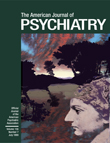Clozapine for Substance-Abusing Schizophrenic Patients
Mr. A, a 43-year-old single white man with a 15-year history of paranoid schizophrenia and cocaine and alcohol abuse, had been hospitalized more than 20 times as a result of psychotic exacerbations concurrent with drug and alcohol abuse. He underwent multiple medication trials without any significant change. Mr. A used alcohol and cocaine intermittently, despite participating in our dual-diagnosis treatment program. Although he was medication compliant, his psychotic symptoms persisted. He was treated with clozapine, and the dose was gradually increased to 550 mg/day at bedtime. Since then, he has had no further hospital admissions. His memory has improved, and he is able to use skills from the drug-relapse classes. He has had no medication side effects, and he reports that he only has occasional psychotic symptoms. Mr. A has not used alcohol or cocaine since starting clozapine treatment, as validated by weekly urine analyses. Moreover, he claims that his cravings for drugs and alcohol have been reduced by clozapine, and when these cravings do occur, they are often easier to manage. Currently, he remains abstinent, and he is psychiatrically stable.
References
Information & Authors
Information
Published In
History
Authors
Metrics & Citations
Metrics
Citations
Export Citations
If you have the appropriate software installed, you can download article citation data to the citation manager of your choice. Simply select your manager software from the list below and click Download.
For more information or tips please see 'Downloading to a citation manager' in the Help menu.
There are no citations for this item
View Options
View options
PDF/ePub
View PDF/ePubGet Access
Login options
Already a subscriber? Access your subscription through your login credentials or your institution for full access to this article.
Personal login Institutional Login Open Athens loginNot a subscriber?
PsychiatryOnline subscription options offer access to the DSM-5-TR® library, books, journals, CME, and patient resources. This all-in-one virtual library provides psychiatrists and mental health professionals with key resources for diagnosis, treatment, research, and professional development.
Need more help? PsychiatryOnline Customer Service may be reached by emailing [email protected] or by calling 800-368-5777 (in the U.S.) or 703-907-7322 (outside the U.S.).

